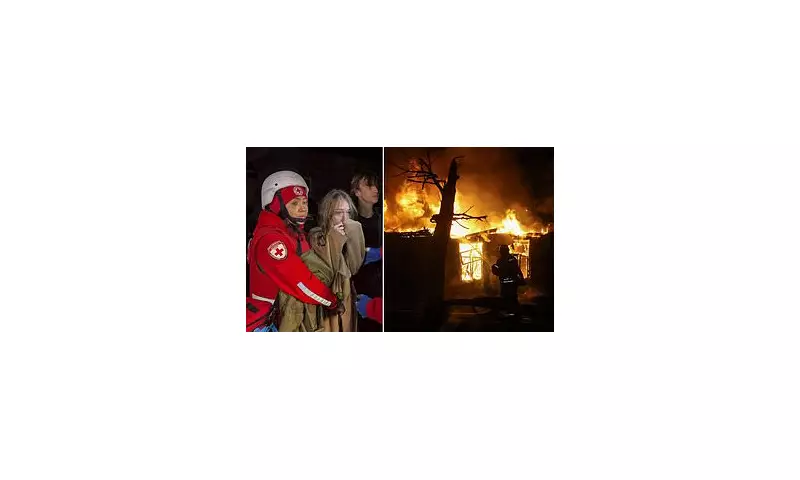
Diplomatic Efforts Stall as Violence Escalates
The Kremlin has firmly rejected European counter-proposals aimed at ending the ongoing conflict in Ukraine, dismissing them as completely unconstructive while continuing military operations that claimed four lives in Kharkiv.
As negotiations concluded in Geneva, Russia maintained its aerial bombardment campaign against Ukrainian cities. The latest attack saw Russian drones strike buildings in central Kharkiv, Ukraine's second-largest city, resulting in four fatalities and further destruction.
Revised Peace Framework Faces Russian Opposition
Britain, Germany and France had proposed significant modifications to the original 28-point peace plan developed by White House and Kremlin officials the previous week. Key European suggestions included ruling out Russia's return to the G8 and increasing the cap on Ukraine's military forces from 600,000 to 800,000 personnel.
Ukrainian President Volodymyr Zelensky had been expected to travel to Washington DC this week for discussions with Donald Trump in an attempt to break the diplomatic deadlock. However, White House press secretary Karoline Leavitt confirmed on Monday evening that no meeting had been scheduled.
American and Ukrainian officials have since agreed upon a new 19-point peace arrangement, described as a refined peace framework. Ukraine's deputy foreign minister Sergiy Kyslytsya revealed that very few elements remain from the initial 28-point proposal.
International Divisions and Battlefield Realities
President Trump had expressed optimism about the Geneva discussions, led by US Secretary of State Marco Rubio, posting on social media that something good was emerging from the talks.
Hopes for a breakthrough had been raised on Sunday when reports suggested Ukraine's European allies might permit Russia to rejoin the international community following a ceasefire, including reinstatement to the G8. Russia's membership in the group was suspended after its 2014 annexation of Crimea.
These prospects collapsed on Monday when German Chancellor Friedrich Merz clarified that the United States stood alone in supporting Russia's G8 return.
President Trump continues to support elements of the original plan that represent red lines for Ukraine, including territorial concessions and a pledge not to join NATO. Ukrainian officials have described these conditions as unacceptable capitulation to Russian demands.
Prime Minister Sir Keir Starmer has held two conversations with President Trump in recent days but failed to achieve a diplomatic breakthrough. He is expected to conduct further discussions with the Coalition of the Willing - European nations anticipated to help monitor any future ceasefire agreement between Russia and Ukraine.
The Prime Minister's spokesman stated: As the US-Ukraine joint statement makes clear, yesterday's talks were a major step towards a just and lasting peace for Ukraine.
Meanwhile, Russia continues to make gradual battlefield advances while targeting Ukraine's energy infrastructure during extreme weather conditions. In response, a Ukrainian counter-attack disrupted power supplies for tens of thousands of Moscow residents.





